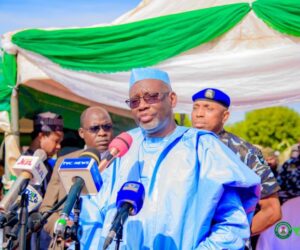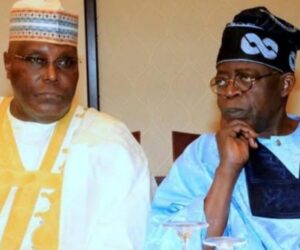It is very disturbing that after twenty-four years of the GSM launch in the country, the service is still poor when compared with the advanced countries. In the UK, a few months ago, I successfully made over 100,000 through-calls the first time, but in Lagos, it was difficult to make just 10 successful calls the first time. It is a sorry state of feeling when one can gesticulate the probable cause of each identified error as a professional. In 2023, I was going to Mubi from Yola for a burial, but we did not know where we were going in the city. We were to call as soon as we got closer to get directions so that our host would meet us nearby. But to my greatest surprise, when we got to the city of Gonbi, we could no longer have access to the mobile network system, and that meant we could not communicate with our host. We got to Mubi and were driving from one end to the other, asking people for any place a burial was going on. We were lucky to find the place after about 70 minutes of being lost. On our way back four hours later, we were able to make calls. So, the use of the system was fluctuating. This experience happened to the two phones we had, which were from different networks. I don’t want to mention the names of the mobile networks in question. Yola is a state capital, and we observed that some mornings and some late afternoons, some subscribers using some networks could not communicate. Don’t take my word for it; call people you know to confirm. I was very troubled in Lagos when I called someone, and I received an error message: “Number not reachable” and, at another time, “switched off”. When I repeated the call and got through to the person, he told me his phone has been on and that is what they suffer occasionally. It should not be so! There were other observed errors: you may call a line and not get a ringing tone; unless the person called answers immediately, you may not know the call went through. Sometimes, you get an error message: “network failure” when you call. Sometimes, you make a call and the called person answers, but both of you cannot hear each other (silence between the caller and the called), but the caller is charged. In other words, at times, callers pay for services they did not use. This is a fraudulent practice on the part of the operators. These errors are symptomatic of improper planning and maintenance of the overall mobile network or improper monitoring by the regulator (NCC).
The observed state of the mobile network is not surprising to me, a telecom professional, because we predicted the improper behavioural pattern of the mobile networks in publications in 2005 and 2011, which were carried by major daily papers at the time. In 2005, using a simple failure test, we observed that the networks, which were barely four years old then, were heavily congested. We tested the intra-connectivity and interconnectivity of each of the mobile networks at the time; we found them to be very congested. Interconnectivity tests examined the behaviour of connections between two or more mobile networks. Whereas the intra-connectivity test examined the performance of communication within a particular network. The publication in 2005 was carried by BusinessDay, Guardian, Vanguard, and ThisDay. In 2011, the test of the behavioural pattern of the mobile networks was repeated, and we found that the networks were still very congested, but understandably, the interconnectivity was better in 2011 than in 2005. The publication in 2011 was carried by most of the news media as well.
In 2005, the heavily observed congestion was to some extent understood because the network infrastructure of the network operators was under construction. However, it baffled me that in 2011, the networks were observed to be very congested because the networks’ infrastructure was reaching maturity in the big cities such as Lagos and Abuja. At that point, it became obvious that if the operators are not properly monitored, some of the infrastructure would deteriorate unnoticed, and hence the communication in networks would be worse as the year of installation or launch increased, as we are currently observing now, after 24 years of launching the GSM service in Nigeria. NCC is the agency charged with monitoring and controlling the operators, and they should live up to expectations; otherwise, the experience of users would become worse, and users’ complaints would be overwhelming.
At this junction, let’s recall here the conclusions reached in the publication of 2011 and thereafter give conclusions to what we observed lately.
“This paper presented some of the outcomes from research conducted to study the behaviour of five mobile operators in Nigeria. Over 70,000 calls were made during the six days of the studies in order to ascertain the reliability of the networks. The study examined different times of the day and different days of the week in order to capture the peculiar behavioural patterns of users in each network. The study took place in Lagos, Abuja and Yola. Research sites were chosen in each city, where all the operators have a consistently full signal. The sites were also chosen such that there should be no fault at all during the research. So, any percentage call failure of more than 1 percent represents serious congestion of the network. Any network that is congested in our test scenario would pose a more serious problem to rural areas and calls between two distant users.
The intra-network and inter-network connectivity were major metrics used to evaluate the networks’ services. We not only found that the networks were heavily congested, but we also found that for each operator, their services were inconsistent from one city to another. The mobile users in smaller cities suffer from congestion from each of the operators. All mobile users are charged using the same tariff, but the ones from the smaller cities do not get as much service as those from the bigger cities, and this is not fair. The NCC should work with the operators to check this variable service across the cities.
There are clear cases of exploitation by some of the operators. The registration of SIM cards has introduced another layer of suffering for mobile users from smaller cities. The registration of SIM cards for MTN and AIRTEL took beyond seven days in Yola. This has led to some corruption on the part of agents’ employees, who expect some gratification before they will upload the registration request to the Head Office. We are also concerned about the proliferation of SIM cards by the operators, which are not adequately backed by proper infrastructure. Moreover, the error messages given by the operator are incongruent with the real cause of failure. A case in point is operators’ messages which say, “The number you are calling is currently switched off,” when it is that the phone is still on; or the one that says, “Number Busy,” when it is not, etc. The author contends that if the current level of congestion in the mobile networks and variability in services across cities are not checked and arrested, it would have far-reaching consequences for the future of mobile services in the country.”
Conclusion:
The mobile phone service in the country should, after 24 years, confer a seamless communication service to users. We cannot continue to experience services fraught with problems. It is pertinent to mention that the issue of the SIM card registration problem observed in 2011 has long been resolved by NCC/Operators, but other associated issues with overseeing the IT and communications implementation still prevail. We may not blame those who control the operators because thorough GSM or engineering knowledge is required for one to perform effectively. So, if the majority of managers are predominantly not trained in the field with the required knowledge to succeed and our government did not make the right planning decision about the infrastructure that will give the nation a robust preparation for future development, then we cannot expect a miracle. I presented over 18 papers to help the process since mobile communication was launched in 2001 in various local conferences. Ten (10) papers were presented to the Nigerian Society of Engineers (NSE) between 2003 and 2011; one (1) paper was presented to the Association of Telecom Companies conference (ATCOM); two (2) at Ministry of Communications organised conferences; three (3) at the UNILAG Electrical Department conference; and two (2) other government presentations on network backbone and data networks. Two additional papers were presented to the Nigerian Institute of Management (NIM) conferences in Kano and Abeokuta. I had over 16 papers published in Nigerian newspapers between 2002 and 2012. All the papers are researched engineering products not paid for or financially supported by anyone or any government. Someone asked why users have continued to experience poor service. Each observed problem is either a deficiency in infrastructure or the attitude of the operators toward the management and planning of infrastructure. A few years into the launch of mobile phones in the country, the profit that was being repatriated by an operator to its home country was alarming. That was when investment in infrastructure should have been paramount in their planning. For instance, you cannot put a Base Station Subsystem to serve 500 SIM cards in an area where instantaneous average user requests would have been 1000 or more. This improper planning will lead to serious congestion in such a network. It is normal to have a future expansion plan built into a subsystem so that operators can come back to increment their infrastructure as requests grow. It is a management issue to return to expand a given infrastructure when growth calls for it or keep building a new one elsewhere to claim large coverage. Moreover, every built system begins to depreciate with time; it is also a maintenance issue if deficient infrastructure or a faulty circuit is not replaced immediately. Of course, a system built to cater for 500 requests, for lack of proper maintenance, may only be able to respond to less than 300 requests, and that can only increase congestion and all sorts of wrong error messages. I want to stress here that in advanced countries, market forces help to regulate the resultant planning and management (including maintenance culture) of mobile services because if an operator is not delivering a good quality of service, the users will seek the use of another operator. Users in the country or in some developing nations are not savvy users and are happy to be able to make a call, quality notwithstanding; it is therefore difficult for market forces to be very impactful. So, the country regulator, NCC, along with their other activities, would be required to get the operators to use best practices in business to deliver reasonable quality.
I must conclude that, over the last 10 years, I have received many calls to write about the state of GSM services and related IT infrastructure in the country, but I refused to do so. However, the pressure continues. I want to use this opportunity to remind readers of the publications I wrote or presented from 2002 to 2015 in order to help people manage the GSM projects with a reasonable understanding of the system. Someone asked me why I had spent lots of time writing in IT, mobile and data communications, but my reply was that a lot of people who contacted me over the years told me how my presentations and write-ups helped them, and that gives me joy. At the time GSM was launched in Nigeria, GSM had only been developed a few years earlier, and unless you were in the lab at the time, you were undeniably a novice, but I was lucky to have worked at AT&T and Bell Labs. I was happy to impart the knowledge to others, and I am glad it helped. I do not intend to write any more about the problems in the field because I have lots of publications already dealing with the subject. I will include three bibliographies here in order to help interested readers because the problems dealt with at the time are as real today. May the Almighty give us inquisitive professionals who are willing to learn and not the ones who will see helpers as competitors.
Prof. Augustine Odinma, FNSE, FBCS, FIET, CEng, holds a PhD in Telecommunications Engineering from the University of London. He is a professor of IT and telecommunications. He was Acting VP and Dean of IT & Communications at the American University of Nigeria; he was Director of Network Solutions & Technologies for Europe, the Middle East and Africa (EMEA) for Lucent Technologies (Bell Labs); and he was Senior Management Staff at AT&T Labs, NJ, USA. He was a professor of computer science/engineering at Benedict College, NC, USA. Those who want to have access to my presentations and papers on Nigerian telecommunications can email me at [email protected].








